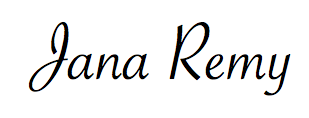“Great writers are either husbands or lovers. Some writers supply the solid virtues of a husband: reliability, intelligibility, generosity, decency. There are other writers in whom one prizes the gifts of a lover, gifts of temperament rather than of moral goodness. Notoriously, women tolerate qualities in a lover—moodiness, selfishness, unreliability, brutality—that they would never countenance in a husband, in return for excitement, an infusion of intense feeling. In the same way, readers put up with unintelligibility, obsessiveness, painful truths, lies, bad grammar — if, in compensation, the writer allows them to savor rare emotions and dangerous sensations. And, as in life, so in art both are necessary, husbands and lovers. It’s a great pity when one is forced to choose between them.”
~Susan Sontag
 It’s been awhile since we’ve talked books (other than cookbooks) on my blog, but of course that doesn’t mean that I haven’t been reading. Although, of late, I’ve been reading more on my iPad than in ‘analog’ form. While there’s nothing quite as wonderful as holding a book in my hand and feeling its spine crack every so slightly with each turn of the page, the convenience of using an eReader makes them my favorite format these days–especially because I can sync my reading between my various desktop computers and laptops, my iPad, and iPhone (I have more of these devices that I can keep track of nowadays!). Here’s a list of some of the books that I’ve either recently finished or am currently reading:
It’s been awhile since we’ve talked books (other than cookbooks) on my blog, but of course that doesn’t mean that I haven’t been reading. Although, of late, I’ve been reading more on my iPad than in ‘analog’ form. While there’s nothing quite as wonderful as holding a book in my hand and feeling its spine crack every so slightly with each turn of the page, the convenience of using an eReader makes them my favorite format these days–especially because I can sync my reading between my various desktop computers and laptops, my iPad, and iPhone (I have more of these devices that I can keep track of nowadays!). Here’s a list of some of the books that I’ve either recently finished or am currently reading:
The Great Railway Bazaar
This travel narrative by Paul Theroux is a description of his rail travels around Asia (including the Orient Express and the trans-Siberian express), and is what I dip into before bed most nights. He’s got me dreaming of future train-related adventures (I’m compiling a list of all those must-do journeys!). I’ve also got his book The Happy Isles of Oceania: Paddling the Pacific on my nightstand–to read as soon as I finish the Railway Bazaar.
Oranges Are Not the Only Fruit
I discovered Jeannette Winterson through her Bill Moyer’s interview about religion and writing. I first read her book Weight: The Myth of Atlas and Heracles because I’m always game for a re-telling of a classic narrative. However, her writing in that book didn’t charm me nearly as much as in Oranges. But of course, I am always a fan of a coming-of-age tale, and the experience of the young protagonist who finds herself at odds with her family’s religious tradition because of her sexual orientation, resonated on many levels with my own experience. I’ve also just barely finished reading her book Written on the Body
, which had some of the most tantalizingly-beautiful descriptions of physical love that I’ve ever encountered. The ending left me a bit flat, however (a cancer story–ugh). But I still highly recommend it, especially as a potent rumination on the way we humans tend to ‘create’ our lovers to satisfy our own needs.
Tess of the D’Urbervilles
This past year I’ve been re-reading many old favorite novels–especially those that impacted me significantly as a teen or young-20-something. I dove back into Tess for that reason. I first encountered Tess in high school and probably re-read it every year until my mid-20s (as well as Hardy’s entire oeuvre–his bleak settings with such tragic scarred characters really spoke to me when I was younger. Why, I’m still not sure). Tess grabbed me all over again, the words and storyline so familiar. I’m at once comforted by the routine-ness of the story, as well as freshly horrified by the plotline. I see myself, my daughter, and every other woman I know, vulnerable on its pages.
Storming the Gates of Paradise: Landscapes for Politics
For someone who knows the West as I do, Solnit’s writing feels as familiar as the rolling hills of California. A perfect accompaniment to my many recent roadtrips, and an affirmation of the importance of this land and our stewardship over it. Her chapter “Sontag and the Tsunami” sums up many of my own feelings about the cultural valence of war, poverty, and calamity:
“We cannot wish that human beings were not subject to the forces of nature, including the mortality that is so central a part of our own nature. We cannot wish that the seas dry up, that the waves grow still, that the tectonic plates cease to exist, that nature ceases to be beyond our abilities to predict and control. But the terms of that nature include such catastrophe and such suffering, which leaves us with sorrow as not a problem to be solved but a fact. And it leaves us with compassion as the work we will never finish.”

